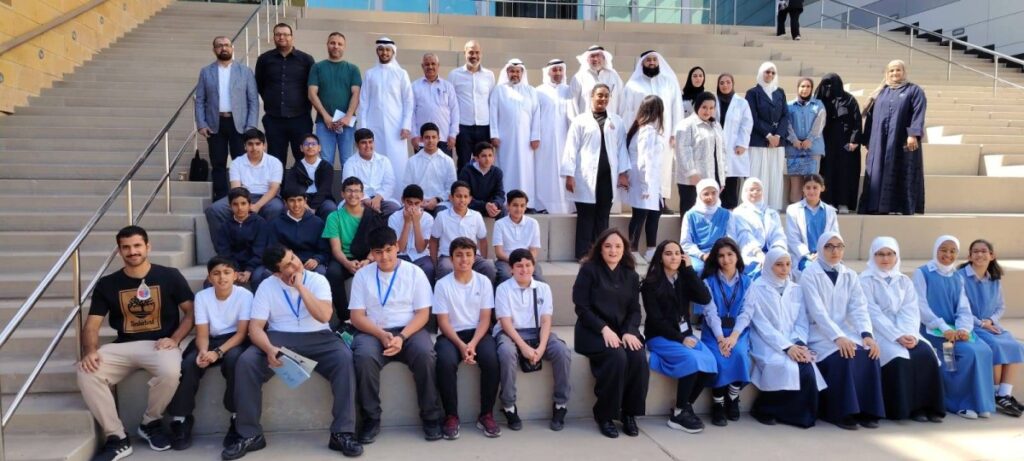KUWAIT: The MILSET Asia office organized a field visit for students participating in the 19th Kuwaiti-French Exhibition, titled “Science in Service of Our Marine Environment”, scheduled for early December, to the Marine Science Center at the College of Science, Kuwait University. The initiative was carried out in cooperation with the General Directorate of Science at the Ministry of Education. In a press statement on Wednesday, the MILSET office said the visit welcomed more than 90 students, both male and female, from 27 schools.
The program featured a series of scientific and awareness-raising activities designed to enhance students’ understanding of marine environmental issues while developing their research and scientific skills. The program began with a scientific seminar delivered by specialized academics from the Department of Marine Sciences. Topics included biodiversity in Kuwait’s marine environment, climate change impacts, coastal and marine ecosystem challenges, and the societal role in preserving these natural resources. Students also toured the center’s scientific laboratories, engaging in hands-on educational experiences.
Participants had the opportunity to examine real marine organisms and sediment samples, observe microorganisms under microscopes, and learn about modern laboratory equipment and experimental techniques. Organizers highlighted that the visit offered a comprehensive educational experience, combining theoretical knowledge with practical application, and fostering environmental awareness among students while motivating them to actively protect Kuwait’s marine environment.
Educational robotics
Meanwhile, the MILSET Asia office, in collaboration with the General Directorate of Computer Technical Guidance, conducted a specialized training course on the SPIKE Prime robotics kit for middle school computer teachers, according to a press release on Tuesday. The course, attended by 51 teachers from schools participating in the 20th annual Kuwait School Robotics Competition scheduled for February, focused on enhancing educators’ skills in educational robotics. Training included theoretical and practical sessions covering the fundamentals of robotics, robot assembly, kit component functions, programming, sensor integration, and task execution using PID technology.
The statement noted that teachers demonstrated a high level of engagement and expressed satisfaction with the competencies gained, particularly in applying PID technology. The training strengthened their confidence and preparedness for active participation in the upcoming school robotics competition, contributing to the development of advanced educational skills among teachers and students alike. — KUNA

